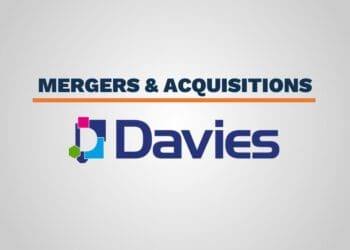with contributing author Nick Turner
The Iran Joint Comprehensive Plan of Action (JCPOA) is opening new commercial opportunities while underscoring the importance of due diligence in the context of economic sanctions. This should be a familiar topic to companies doing business in Asia, where Myanmar and North Korea pose similar challenges owing to the large number of specially designated nationals (SDNs) and the presence of front companies operating on behalf of SDNs. Knowing and verifying the identity of commercial counterparties is essential to managing this risk on a proactive footing.
Iran Challenges
The JCPOA, whose one-year anniversary was July 20, 2016, promised an influx of new business to Iran as a result of the lifting of many global sanctions. While U.S. persons are still largely prohibited from doing business with Iran, the U.S. government eased some secondary sanctions against non-U.S. persons which had targeted Iran’s energy, shipping, software, automotive and other sectors. Additionally, the U.S. Treasury Department’s Office of Foreign Assets Control (OFAC) issued General License H, which permits non-U.S. subsidiaries of U.S. companies to engage in certain activities which were previously prohibited.
Despite the changes, many non-U.S. companies are hesitant to act for fear of attracting unwanted regulatory scrutiny. For their part, U.S. officials have attempted to assuage concerns and demystify expectations concerning Iran. For example, in May 2016, U.S. Secretary of State John Kerry met with executives from major European banks to encourage them to take on Iranian customers after conducting “normal due diligence.”
In theory, non-U.S. companies should be able to engage in new business in Iran, provided they do not transact with SDNs or entities owned by SDNs. That is easier said than done because of the significant involvement of SDNs in commercial activities in the country. For example, Iran’s Revolutionary Guard Corps (IRGC), which continues to be sanctioned by the United States, is known to play a substantial—albeit opaque—role in numerous economic sectors.
These concerns are compounded by the country’s elevated risk of money laundering and terrorist financing. Until June 2016, the Financial Action Task Force (FATF) encouraged its member states to apply countermeasures against Iran due to deficiencies in the country’s anti-money laundering and countering of terrorist financing regime—among them, the difficult task of obtaining beneficial ownership information of Iranian firms.
Not Just Iran
Regulators have long warned that North Korea’s government uses agents and front companies for illicit activities, from counterfeiting U.S. dollars to developing nuclear weapons and ballistic missiles. In June 2016, the U.S. Treasury Department named North Korea a jurisdiction of primary money laundering concern, citing its government’s use of “an extensive overseas network of front companies, shell companies, joint ventures and opaque business relationships.”
In mid-2015, U.S. financial institutions were forced to freeze or reject shipping documents, wire transfers and other transactions after learning that a major port facility in Yangon, Myanmar was owned by the Asia World Group, an SDN conglomerate. Shipments and financing were stymied until December 2015, when the OFAC issued General License 20 to except certain trade-related transactions from sanctions. In March 2016, the OFAC extended the license to cover goods moving within Myanmar in apparent recognition of the control SDNs exercise over roads and other basic infrastructure. Another SDN, the military-controlled Union of Myanmar Economic Holdings Limited is the major shareholder of the country’s largest brewery, among other interests.
Compliance
Regulators increasingly expect companies engaged in international trade to have compliance programs commensurate with their risk profiles—including sanctions risk. For U.S. persons, failing to conduct adequate due diligence on counterparties’ beneficial owners could form the basis for an OFAC enforcement action, were the counterparty owned by an SDN. The action would likely turn on whether the U.S. person knew or should have known about the SDN involvement.
Non-U.S. persons could potentially face secondary sanctions or other measures for engaging in significant business with SDNs. Meanwhile, financial institutions may independently elect to reject or freeze wire transfers or other transactions that appear to relate to SDNs or sanctioned countries.
The task of verifying a commercial counterparty’s beneficial ownership is complicated further because OFAC regulations state that the property of an entity that is owned 50 percent or more by one or more SDNs is also blocked. This means that due diligence must establish the aggregate interest of all SDNs involved in the ownership chain. In markets that lack reliable public records, this task is even more daunting.
Recommended Actions
Companies are advised to conduct periodic assessments of the risks associated with the geographies where they operate and their major counterparties as part of their ongoing compliance program. This is especially pertinent in higher risk regions such as Asia and the Middle East. Companies should undertake due diligence on higher-risk counterparties to ascertain beneficial ownership and investigate completely potential red flags revealed in the course of the review, using both publicly available information and, where appropriate, specialized commercial databases or investigative services.
Counterparties may be asked in agreements to divulge beneficial ownership, report on changes to beneficial ownership or provide reps and warranties, as circumstances warrant. A documented legal analysis can be essential for decision-making and regulatory risk management where due diligence reveals potential sanctions risks. Finally, companies may wish to provide this and other information to their banking partners prior to engaging in higher risk transactions to facilitate internal compliance reviews.



 Wendy L. Wysong is a partner at
Wendy L. Wysong is a partner at 









